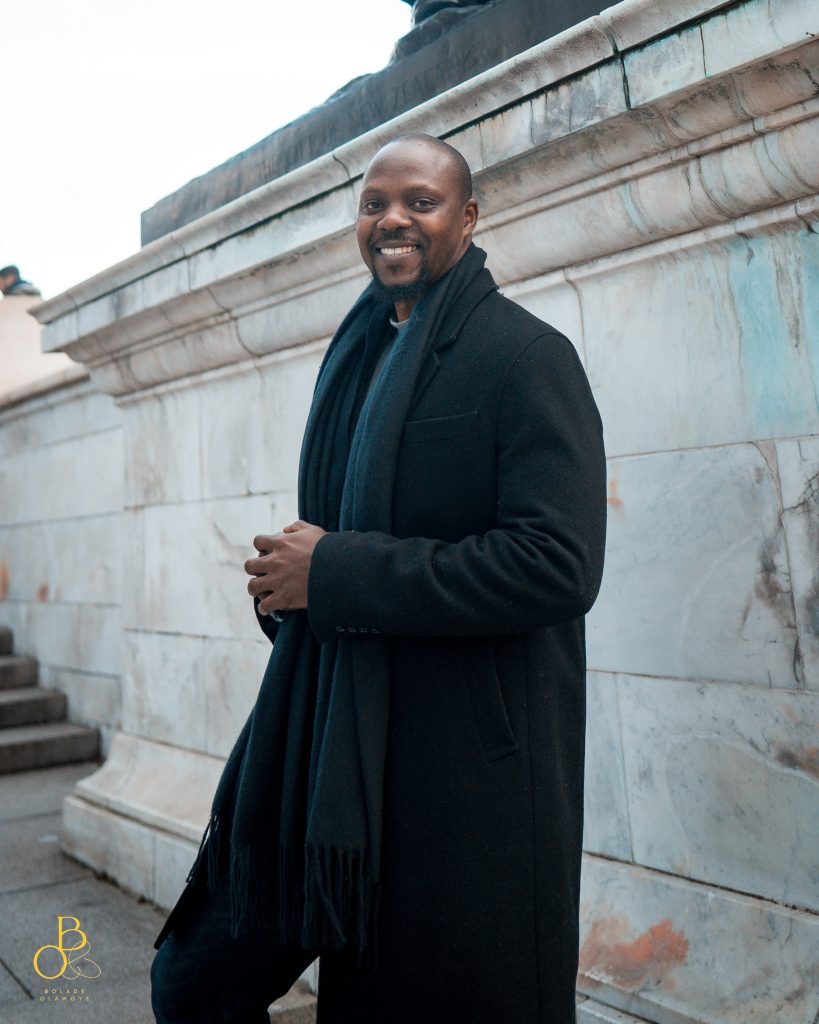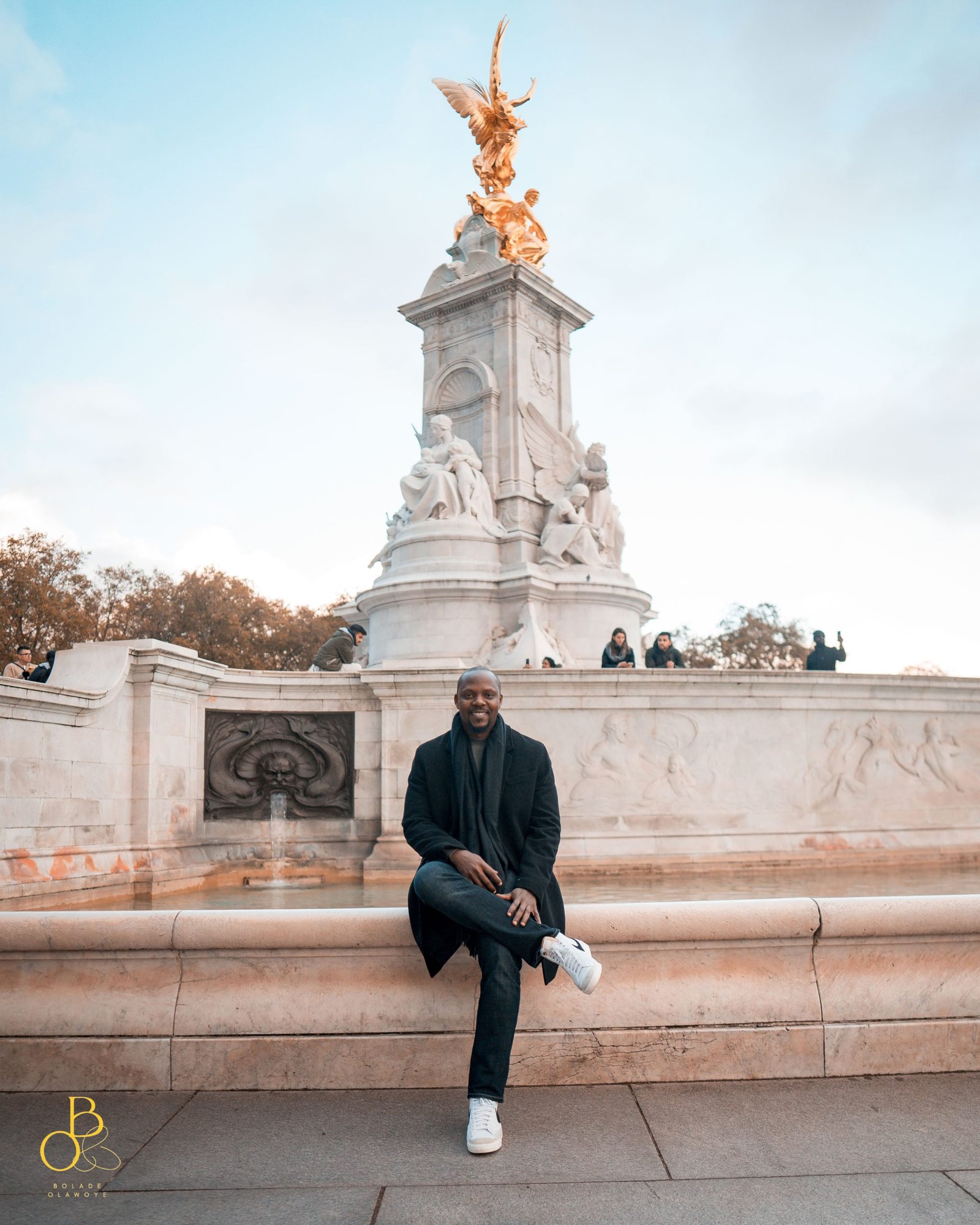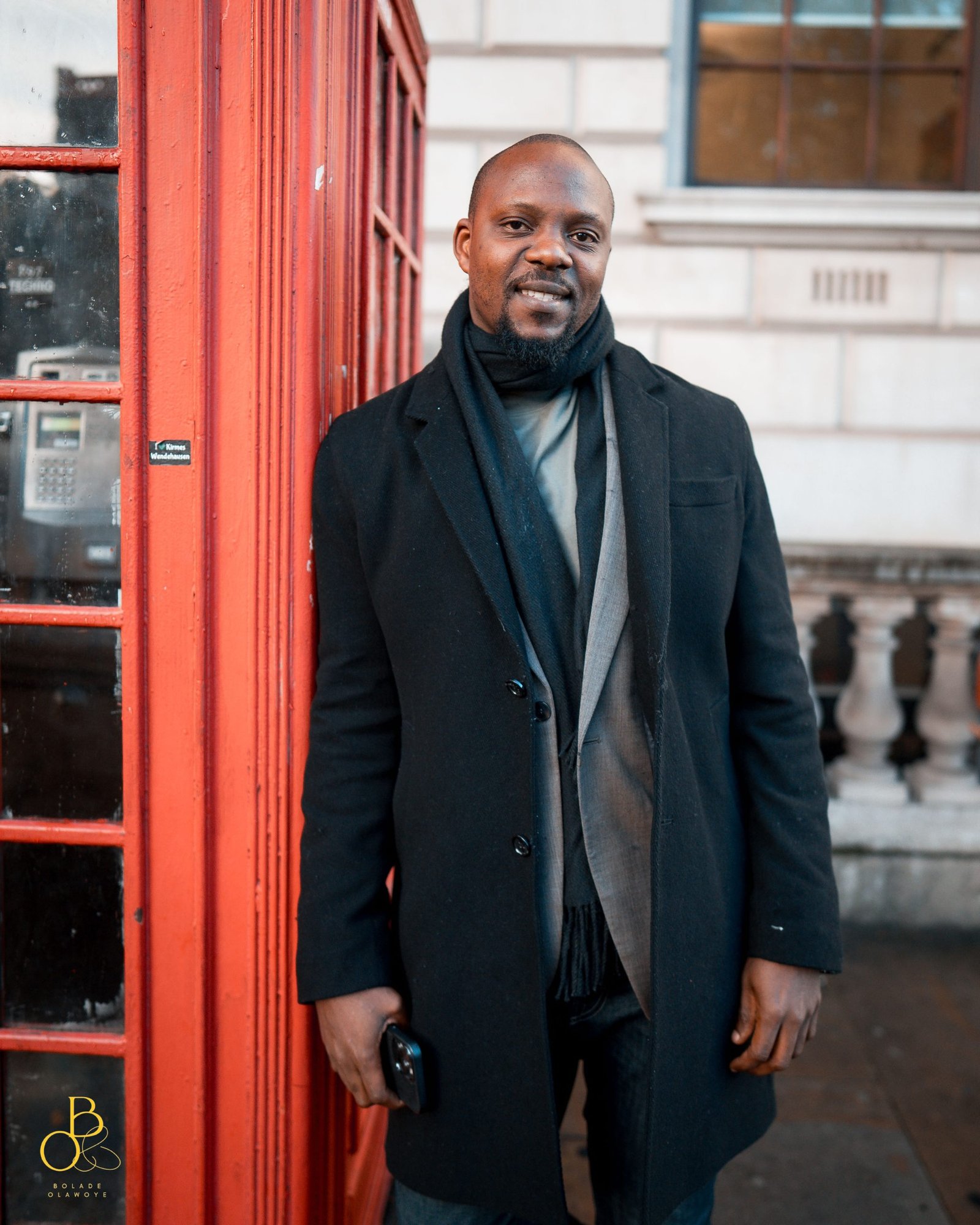
Welcome to “The Book” interview series on A&R Duty, where we delve into the lives and experiences of industry leaders shaping the future of music. Today, we’re honored to feature Akinyemi Law, Africa’s finest lawyer for creatives and a powerful advocate for the entertainment industry. In this exclusive interview, Andrea Andy sits down with Akinyemi to explore his remarkable journey from aspiring musician to legal powerhouse and uncover the driving force behind his tireless advocacy for artists and creatives. Join us as we uncover the story behind the man on a mission to revolutionize the industry.
In the ever-evolving landscape of the Nigerian entertainment industry, few names command respect like Akinyemi Law. Africa’s finest lawyer for creatives and a powerful advocate for the industry, Akinyemi’s passion is as evident as his long, winding journey. During our conversation, one thing became clear: this is a man deeply committed to his craft, with a story that is as inspiring as it is compelling.
Akinyemi describes himself as an advocate for doing things properly—a principle he has upheld for over 15 years. “I try my best to educate people and champion the interests of creatives in the industry,” he shared. Before our chat, I was curious about the man behind the mission. What drives a lawyer to fight so fervently and publicly for the creative industry? The answer, as it turns out, lies in his journey.
Once a recording artist and songwriter, Akinyemi Law harbored dreams of becoming the next 2Face Idibia. “I wanted to be like 2Face Idibia. As a young star, he was my idol. I gave it my best shot, recording and writing music for some years until I qualified as a lawyer. After that, I thought about becoming a talent manager or a label owner, like my role model, Audu Maikori.”
Akinyemi’s foray into talent management was marked by dedication and devotion, a journey he walked for almost two years. But when his talent decided to take a break from music, Akinyemi redirected his path towards law. “I became an entertainment lawyer and tried to represent everyone in the entertainment industry. But five years down the line, I decided to focus on music law.”

His journey as a student at the University of Lagos was one of self-evaluation. Constantly reflecting on his future, Akinyemi aligned his goals and discovered his passion for entertainment law in his third year. “I was reading the newspaper and saw an interview with Audu Maikori, the founder of Chocolate City, and that gave me ideas.”
“I’m happy I took the path of being a music lawyer,” Akinyemi said with a smile, “I’m very happy.”
Akinyemi’s background and experiences fuel his passion. When asked about how his journey from aspiring performer to legal advocate for artists shapes his work, he said, “I’ve been desperate, I’ve been broke, I’ve had dreams of climbing stages and expressing myself at the highest level. So, in a way, I think I connect well with talented people.”
However, Akinyemi’s journey has not been without challenges. He spoke candidly about the difficulties of being the most knowledgeable person in a room full of ignorance. “If you are the only knowledgeable person among ignorant people, they can come together to frustrate you. I learned that early, which is why I started my educational initiatives.” He believes that educating others is key to overcoming resistance. “If you are trying to do things properly, those who don’t see things from your perspective can become your greatest adversaries.”
Curious, I asked about the pressures of advocating for the right way to do things. Does he feel threatened? Akinyemi believes that while some appreciate what he does, the only pressure he experiences comes from within. He has seen the legal landscape evolve and believes there is still much work to be done, particularly in the protection of stakeholders and music executives. “We need a collective voice, more efficiency, and a dedication to learning. If you work in music and don’t have a mentor, you’re cheating yourself out of valuable information and networks. We need more platforms for skill transfer and scholarships that enable people to learn.”
The Nigerian music industry is becoming a global phenomenon, and there are ongoing debates about its structure. I asked Akinyemi for his thoughts. “We’ve come a long way over decades. People have been setting up labels for many years. There’s been an industry because there’s been demand and supply; there’s been monetization, so it can only get better. There’s been a lot of effort locally and internationally to make the best music and create a system where we’ve been able to project our local music globally. I don’t have any worry—our structures might not be perfect, but they will get better.”
After a deep dive into legal talk, we shifted gears to get to know Akinyemi on a personal level. How does he de-stress from the workload? “I like to work out, hang out with people, drink wine, enjoy fine dining, and spend time with my kids.” So, if you ever want to make Akinyemi Law happy, you now know—good wine and fine dining are the way to his heart.
Throughout our chat, Akinyemi spoke often about his kids. When asked about his motivation, he was clear: “My kids are my biggest motivation. I want to build a legacy for them. I didn’t grow up poor, but I want to create a life of abundance for my family.”

In a playful moment, we played a “red pill, blue pill” game. The red pill lets him reshape the Nigerian music industry by implementing one groundbreaking legal reform that will benefit artists and creators for generations, but it means he must step away from his current career. The blue pill allows him to continue his passionate work in the industry as it is, with all its challenges and rewards. Which would he choose? It was a tough one, but he chose the red pill. “I’d be at peace knowing that I can make the industry a better place. Maybe I’d go into football or something else I like—because I like football—or maybe even education. But walking away from music is tough. However, if my name is written in gold for coming up with an idea that changes the industry for hundreds of thousands of years, then I’ll be at peace with that.”
One thing became abundantly clear during our conversation: Akinyemi Law is extremely family-oriented. “I love being a family guy,” he said.
His career has not always been smooth, and a significant challenge has been dealing with people in the industry who do not want others to shine—a mentality he believes is rooted in greed. He does his best to break that status quo, believing that better knowledge leads to better decisions.
Akinyemi credits his upbringing in a music-appreciative environment as a key factor in shaping his identity. “I’m thankful. I don’t have a sad story growing up. My parents set me on a journey that is also going to help take care of my kids.” Above all, he is grateful for the gift of life and his family, which he counts as his biggest
As our conversation with Akinyemi Law comes to a close, it’s clear that his impact on the entertainment industry extends far beyond his impressive resume. With a heart for creatives and a passion for justice, Akinyemi is a shining example of what it means to use one’s talents to make a difference. We’re grateful for his time and insights, and we can’t wait to see the continued impact of his work. Thank you for joining us on this episode of “The Book” interview series on A&R Duty. Stay tuned for more inspiring stories from the music industry’s most influential figures.
Written by Andrea Andy


Having a lawyer on your side as an A&R is a good idea. So, why is that? I will let you know about its importance here in this blog by highlighting some of the excerpts:
As an A&R (or any other member of a record label), you will likely be exposed to thousands of pieces of music every month. You will want to make sure that everything you are working with is legally cleared and that your company has the ability to use it freely.
To do this, you need to make sure that you have a lawyer on hand who understands how the music industry works. Here are some examples:
As an A&R, you will likely be exposed to thousands of pieces of music every month. You will want to make sure that everything you are working with is legally cleared and that your company has the ability to use it freely.
You must understand what it means when a piece of music is “legally clear” or “cleared”. This simply means that the rights have been obtained in order for your company to use it commercially without receiving any legal backlash from any individuals or organizations who own rights to the piece (e.g., the actual musician/band who created it). It also means knowing who owns those rights so you can contact them directly if needed. In other words, this step prevents any legal action against your company for copyright infringement which could result in expensive litigation fees and/or penalties being imposed on you personally as well as on your employer should they choose not to take adequate precautions before using someone else’s creative work (music) within their business operations (recording studios).
What is the most important thing to remember when you are working on a contract?
A contract is a legal document, and as such, it should be clear and concise. The contract should also be fair to both parties involved in the deal. A good contract will specify exactly what you’re agreeing to do, by when, and for how much. It should also specify which party will pay for what costs (for example, if someone wants you to travel somewhere for a meeting or performance, who’s paying for your flight?)
Once all of this has been agreed upon in writing, make sure that both parties sign the document!
As an A&R, you know how difficult it can be to make money in the music industry. Royalty collection is no different. In fact, it may be even more difficult because there are so many entities that are entitled to royalties for your artists’ work. You need to know how to collect royalties from:
You must know how to collect royalties from all sources.
streaming services, digital downloads, physical sales, and sync licensing are the main ways that artists make money from their music these days. If you’re not collecting from these sources then you’re missing out on a huge chunk of your income.
The foundation of any record label is its talent and its legal rights to the talent’s music.
Make sure you know how to collect from all possible sources. The last thing you want to do is sign yourself or your company into a bad deal that may cost you money, power, or time down the road.
If you’re working with music and talent, it’s critical that you have legal representation. A good lawyer will help ensure that you are protected from mistakes and theft, as well as make sure that your label is able to collect royalties and monetize its talent. This is an investment well worth making!